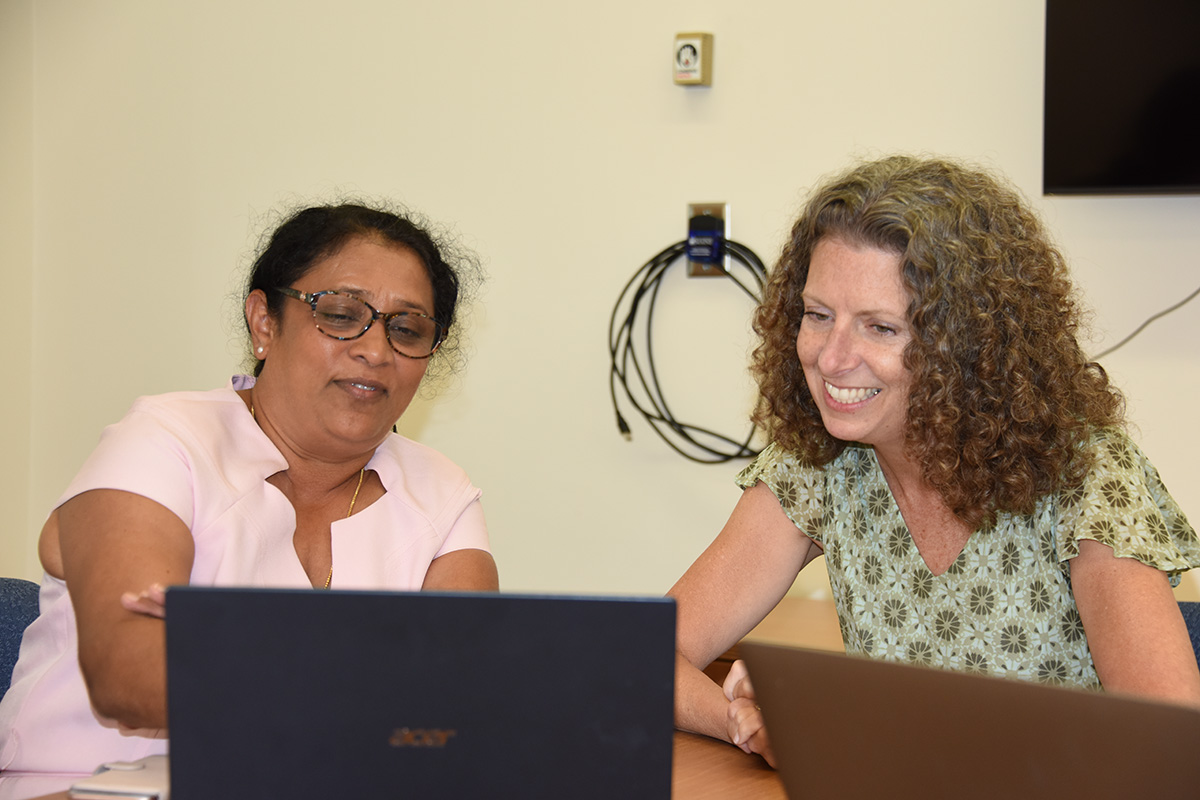
International collaboration probes personalized learning in the U.S., Australia and beyond
A little over a year ago, University of Maine College of Education and Human Development dean Penny Bishop got an email from Maya Gunawardena, an assistant professor of teacher education at the University of Canberra in Australia.
Gunawardena was diving into her latest research passion — personalized learning — exploring how teachers can use lessons and curriculum tailored to individual students’ skills, curiosities and needs to improve educational outcomes.
In the course of her research, she came across a book, “Personalized Learning in the Middle Grades,” co-authored by Bishop, who was at University of Vermont at the time.
The two like-minded scholars made a connection, and started discussing ways they could partner on research. This summer, Gunawardena arrived in the U.S. as a visiting scholar at UVM, where she’ll be working with schools that Bishop studied for her book.
Shortly after that initial email, Bishop came to UMaine, but their correspondence and collaboration kept going. Gunawardena recently came to Maine to meet faculty and staff at the college and university. She’ll give a virtual talk about personalized learning for the college during the first week of fall classes, and she and Bishop hope to build additional partnerships both during her stay in the U.S. and after she returns to Australia.
“There’s growing interest in student-centered learning among educators and those of us who study education, but we often find that it’s defined and operationalized quite differently across settings,” says Bishop. “That’s why this collaboration is so exciting. The goal is to build a knowledge base to show how personalized learning works and how schools can successfully implement it.”
Bishop adds that the international nature of the collaboration will allow researchers to test different theories and examine cases across different locations and contexts.
In addition to personalized learning, Gunawardena has published research on social-emotional learning, TESOL education, cultivation of critical thinking, literacy and Indigenous education. She has more than 30 years of experience teaching at the K-12 and university levels, has taught teacher education courses in Sri Lanka and Australia, and worked as an educational consultant in south Asia.
She notes that personalized learning and other approaches that give students more autonomy and voice in terms of their own education are not new. However, the overall culture of education across much of the globe is still very much based on a top-down model. Gunawardena says she’s hoping to build on the work outlined by Bishop and her team in their book, where teachers are taught how to bring personalized learning plans into their classrooms.
“Rather than change the entire approach, we want to give teachers the tools to use these culturally responsive pedagogies in multiple contexts,” she says.
Studying in the U.S. and seeing how personalized learning has been implemented here is helping Gunawardena understand what might work in Australia and some of the other areas where she has worked.
“We don’t have to start from scratch,” she says. “At the same time, what one country is doing may not work or be appropriate in another. But when we collaborate internationally, we get a better picture of what will work in different contexts.”
Besides their research collaboration, Bishop and Gunawardena see other opportunities for UMaine and University of Canberra to work together. UMaine has long-standing partnerships with other institutions in Australia, including student exchange programs with Griffith University and Edith Cowan University. Those programs were suspended during the COVID-19 pandemic, but will resume this year according to Orlina Boteva, UMaine’s director of international programs.
Boteva, who met with Gunawardena on her recent trip to Maine, says the partnership opens the door to some exciting opportunities.
“There are student and faculty exchange possibilities, further scholarship and research, virtual trainings for local teachers in both locations, collaboration and training for teaching multi-language learners, such as with our Intensive English Institute,” she says.
Gunawardena will give a virtual talk as part of the College of Education and Human Development’s School of Learning and Teaching Research Brown Bag series from 11:30 a.m.–12:30 p.m. Friday, Sept. 2 The talk is titled “Insights into personalized learning: Co-creating a practical guide to enhance teacher cognition and professional development.” For connection information, email coehd@maine.edu.
Contact: Casey Kelly, casey.kelly@maine.edu
